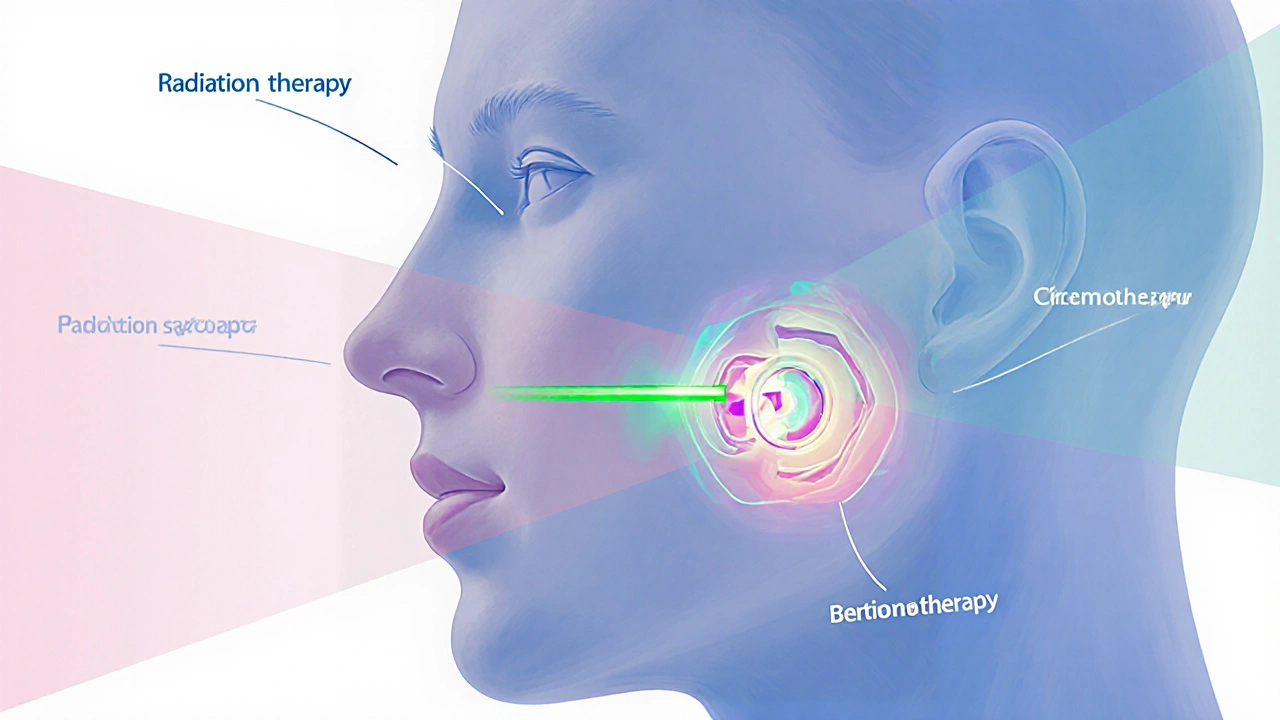
Learn why cancer treatments cause dry mouth, discover practical self‑care, prescription options, and when to seek professional help for effective relief.
When dealing with saliva substitutes, products that mimic natural saliva to keep the mouth moist. Also known as artificial saliva, they are used to combat dry mouth, medically referred to as xerostomia. These substitutes provide lubrication, protect teeth, and make speaking or eating easier.
One of the biggest reasons people reach for these products is the discomfort of a dry oral cavity. When saliva production drops, the mouth loses its natural cleaning action, leading to bad breath, difficulty swallowing, and an increased risk of cavities. Saliva substitutes step in by supplying moisture and a protective film. Most formulations contain agents like carboxymethylcellulose, glycerin, or hyaluronic acid, which bind water and create a soothing layer. Some are flavored to improve taste, while others are designed to be odor‑free for nighttime use. The choice of product often depends on the underlying cause of dry mouth—whether it’s a side effect of medication, radiation therapy, or an autoimmune condition.
Within the broader category of oral moisturizers, there are gels, sprays, lozenges, and rinses. Each type offers a unique delivery method. Gels stay longer on the gums, making them ideal for people who need continuous lubrication. Sprays quickly coat the tongue and palate, perfect for on‑the‑go relief. Lozenges slowly dissolve, releasing moisture over several minutes, which can also stimulate any remaining salivary glands. Rinses are useful after meals to wash away food particles while adding a thin layer of moisture.
Another related entity is mucosal lubricants, which are specifically formulated to protect the delicate lining of the mouth. These often contain bio‑adhesive polymers that cling to tissue, reducing friction during speech or chewing. Because they’re designed for sensitive mucosa, they’re a good option for patients undergoing radiation for head‑and‑neck cancers, where tissue irritation is common. Using a mucosal lubricant alongside a saliva substitute can enhance overall comfort and reduce the need for frequent re‑application.
Choosing the right product involves a few simple steps: identify the severity of dry mouth, consider any allergies to flavorings or ingredients, and decide how often you’ll need to apply it. For mild cases, an over‑the‑counter spray may be enough. For moderate to severe xerostomia, a gel paired with a nightly rinse often delivers the best results. Always read the label for sugar content; sugar‑free options protect teeth while still providing moisture.Below you’ll find a curated list of articles that dive deeper into the science behind saliva substitutes, compare popular brands, and offer practical tips for managing dry mouth in daily life. Whether you’re looking for ingredient breakdowns, usage schedules, or ways to talk to your doctor about prescription‑strength options, the posts ahead cover it all.

Learn why cancer treatments cause dry mouth, discover practical self‑care, prescription options, and when to seek professional help for effective relief.